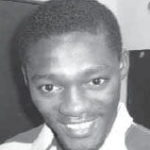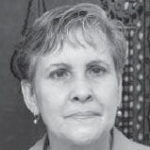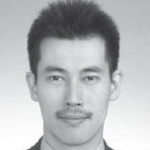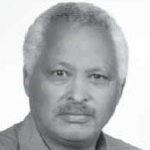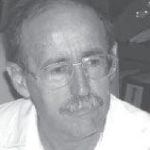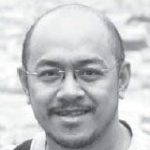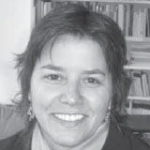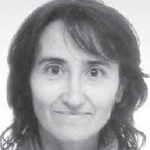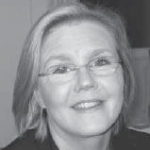Seye Abimbola MD MPhil
Physician with a master’s degree in epidemiology. Dr Abimbola is a research fellow at the National Primary Health Care Development Agency, Abuja, Nigeria, and is currently doing a fellowship in international health policy at the Institute of Tropical Medicine, Antwerp, Belgium. His research interests include global health policy, primary health care, and in particular, the organization of health systems for chronic non-communicable diseases.
Cesar Hermida Bustos MD MSc
Physician with a master’s degree in social medicine. Dr Hermida is a consultant on postgraduate health research at the University of Cuenca, Quito, Ecuador and a doctoral candidate in Collective Health, Environment and Society at the Simón Bolívar Andean University in Ecuador. He has served as Ecuador’s Vice Minister of Health and PAHO/WHO representative in Belize, Honduras, and Venezuela. His research interests include health policy, systems, and services.
Gladys Abreu Suárez MD MS PhD
Pediatrician with a master’s degree in comprehensive pediatric care and a doctorate in medical sciences, specializing in pulmonology. Dr Abreu is associate professor at the Medical University of Havana and heads the National Reference Center for Childhood Tuberculosis at the Central Havana Pediatric Hospital. She belongs to the National Pediatric Group and the National Tuberculosis Control Program’s Technical Commission, and is president of the Cuban Pediatric Society.
Hideki Higashi MPH MSc
Health economist with a master’s degree in public health. After many years of involvement in various health development projects in Asia and Africa, Mr. Higashi is currently a research fellow at the School of Population Health, University of Queensland, Brisbane, Australia. His recent research interests include burden of disease, cost-effectiveness, and policy analysis at national and global levels.
Hailom Banteyerga PhD
Health systems and policy analysis specialist with a doctorate in education. Dr Banteyerga is lead health researcher at the Miz-Hasab Research Center, Addis Ababa, Ethiopia, and professor of health communication and critical discourse analysis at Addis Ababa University. He has researched and published widely on HIV/AIDS and in health policy and system studies.
Agustín Lage Dávila MD PhD
Physician specializing in biochemistry, with a doctorate in medical sciences. An adjunct professor at the Medical University of Havana, Dr Lage has directed the Molecular Immunology Center, Havana, since 1990. He is former deputy director of the National Oncology and Radiobiology Institute, where he led research on cell proliferation and on immunotoxins. He coordinated Cuba’s National Cancer Program from 1985 to 1990. His current areas of research are immune system regulation and cancer vaccines.
Vera Schattan Coelho PhD
Social scientist focusing on public policy. Dr Coelho is research director of the interdisciplinary Brazilian Center for Analysis and Planning (Cebrap) in São Paulo, Brazil, where she also serves as the Coordinator of the Citizenship and Development Group. She has led various comparative studies on new forms of citizen involvement and health governance and has published widely on health policy, pension reform, and public involvement.
Linh Cu Le MD MSc PhD
Physician with an engineering degree in information technology, master’s degree in applied development, and doctorate in public health. Associate professor in public health and chair of the Demography and Graduate Education Departments at the Hanoi School of Public Health, Vietnam. His research interests include population and reproductive health, adolescent health, injury and violence prevention and control, and public health education.
Ana Cristina González Vélez MD MA
Physician with a master’s degree in social health research. An expert in health sector reforms, sexual and reproductive health and rights, and advocacy, Dr González was Colombia’s National Director of Public Health from 2002 to 2004 and is now a consultant on health sector reform in Colombia. She is a visiting researcher at the State and Society Studies Center (CEDES), Buenos Aires, Argentina, and regional advisor to the UN Population Fund.
Rene Loewenson PhD(Med) MScCHDC
Epidemiologist and director of the Training and Research Support Centre, Harare, Zimbabwe, which is a cluster lead in the regional network for equity in health in Eastern and Southern Africa (EQUINET). Since 1980 she has done research, policy analysis, training and organizational development on different aspects of equity in health systems, community health, and on health related to employment.
André-Jacques Neusy MD DTM&H
Internist specializing in nephrology and public health, Dr Neusy is executive director of THEnet (Training for Health Equity Network), an international partnership of innovative schools of health sciences and medicine addressing the needs of underserved populations. He holds academic positions at several universities and has research expertise in health professions education, global health, and chronic noncommunicable diseases.
Bjorg Palsdottir MPA
Ms Palsdottir has a master’s degree in public administration and a certificate in training and organizational development. She is co-founder and program development director at THEnet. In addition to developing and managing programs for THEnet, she conducts research, publishes and consults on health workforce issues, multi-stakeholder planning processes, leadership and institutional development in the global health context.
Letters
To the Editors:
I welcome Professor Calixto Machado’s interesting article in the October, 2010 issue of MEDICC Review (Describing Life to Define Death: A Cuban Perspective) and concur with his definition of death as the irreversible loss of consciousness, involving all parts of the brain, a definition he has defended with convincing scientific arguments in his book Brain Death: A Reappraisal, which I recently reviewed.[1] His article is highly relevant, since certification of death is an indispensable prerequisite for post-mortem retrieval of organs or tissues.
I would like to emphasize that in Cuba, Article 83 of Decree No. 139 (1988), a health legislation regulation, stipulates that any medical procedure related to transplantation of organs or tissues may be performed only after certification of donor death, as required by law and according to strict diagnostic criteria, based on methods and procedures established by the Ministry of Public Health.[2] These are precisely as summarized by Dr Machado in his Viewpoint.
In addition, in Cuba, a citizen’s official identity card has a section permitting an individual to freely indicate whether, upon death, he or she wishes to be an organ donor.
As Dr Machado points out, the use of a ministerial resolution rather than an act of parliament to determine all aspects related to certification of death facilitates reassessment informed by future scientific advances. Thus, the legal framework can be modified according to research results from Cuba and elsewhere that contribute to scientific understanding of death and diagnosis of brain death – a polemical discussion that historically has undergone many important changes and surely will continue to do so.
Ricardo Hodelín Tablada MD PhD
Neurosurgeon, Saturnino Lora Provincial Teaching Hospital
Santiago de Cuba
- Hodelín Tablada R. Muerte encefálica. Un nuevo enfoque. MEDISAN. 2011;15(2):280-3. [Spanish]
- República de Cuba. Gaceta oficial. Decreto No. 139 del 4 de febrero de 1988 (Reglamento de la Ley de Salud). Edición ordinaria No. 12. La Habana, lunes 22 de febrero de 1988:177-192. [Spanish]
Author Calixto Machado Responds
I thank Dr Hodelín, one of Cuba’s experts on brain death, for his comments on my views and their medical, legal, and ethical implications.
In contrast to the old Spanish Civil Code, which defined death as “irreversible cessation of cardiorespiratory functions,” the lawyers who drafted Cuba�s current Code took an advanced position in the global context when they wrote: “The determination and certification of death is to be made by duly authorized experts in conformity with regulations established by the competent authority.”[1] Early in the 1990s, the Ministry of Public Health proposed establishment of a National Commission on Death Certification; and after several drafts, on September 21, 2001, Public Health Resolution 90 was published in the Republic of Cuba’s Official Gazette, providing the definitive response to the Civil Code’s requirements for determining and certifying death in Cuba.
In general, the aspects of this Resolution that can be considered novel, nationally and internationally, are included in my Viewpoint. The clinical and instrumental signs for determining death are attached as appendices to the Resolution, to be reviewed periodically by the National Commission on Death Certification, as scientific and technological advances warrant.[2] Thus, as pointed out, the Resolution enabled development of a regulatory framework for determining death sufficiently flexible to permit review and amendment with scientific and technological progress.
- Gaceta Oficial de la República de Cuba. Justicia. Ley No. 59 del 16 de Julio de 1987 (Código Civil). Ciudad de La Habana: Ministerio de Justicia. Edición Extraordinaria No. 9, 16-7-1987; p. 39-81. Spanish.
- Machado C. Comisión Nacional para la Determinación y Certificación de la Muerte. Resolución para la determinación y certificación de la muerte en Cuba. Rev Neurol. 2003;36:763-70. Spanish.



